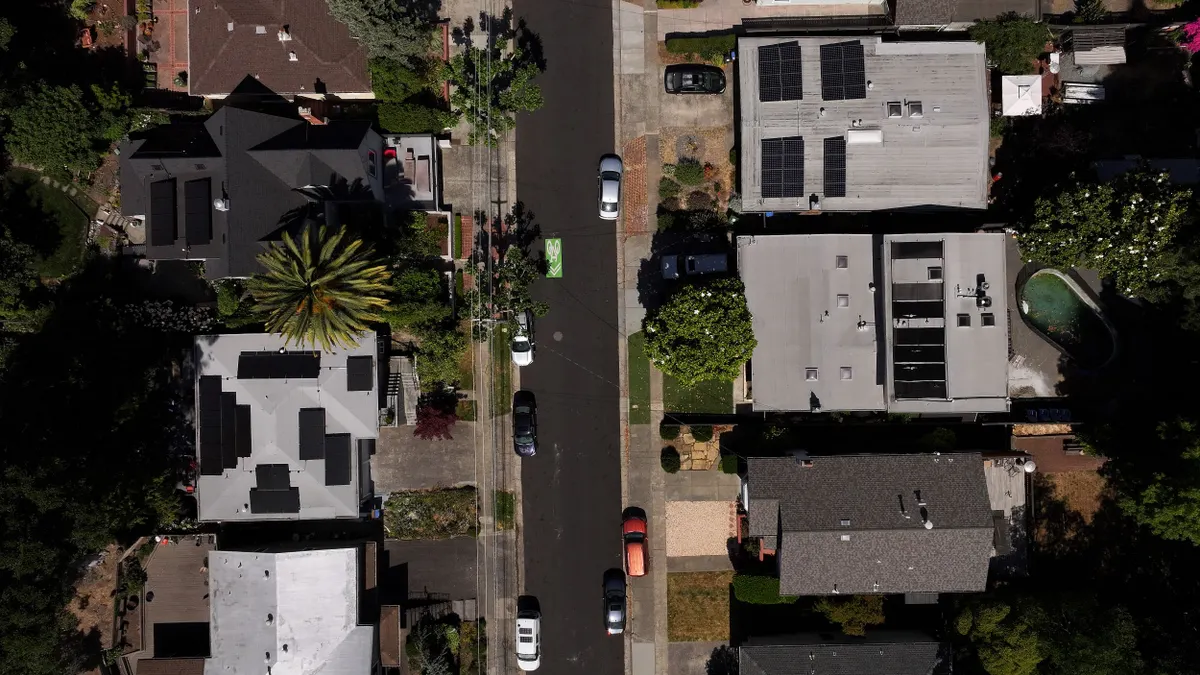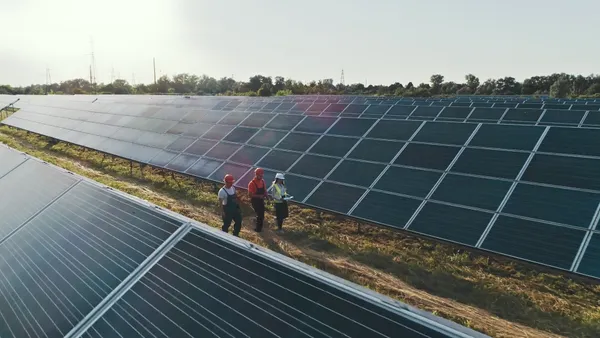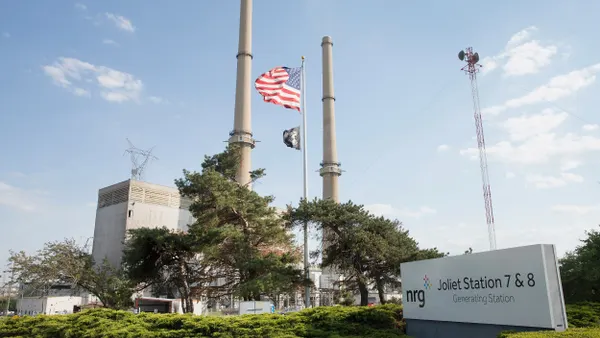Dive Brief:
- Convergent Energy + Power has installed a 3 MWh bank of batteries in Boothbay, Maine, in an effort to help alleviate the region's overloaded transmission system without having to construct new power lines.
- The battery bank was developed under a program administered by Maine-based solar developer GridSolar.
- Costs of the battery system are not being released, but Convergent said upgrading the region's transmission system would have required permitting and developing lead times, and ultimately would have been five times as expensive.
Dive Insight:
The Portland Press Herald reports this is the first utility-scale storage project online in New England.
The paper toured Convergent's battery project last month, describing it as three shipping containers that store enough electricity to power 100 homes for an entire day. The system can deliver up to 500 KW of electricity for up to six hours, potentially helping alleviate transmission overloads and integrating more solar and wind into the mix.
Central Maine Power called upon the batteries for the first time to dispatch power in late April, according to Convergent. The company charges the batteries at night so they are ready for dispatch between 9 a.m. and 9 p.m., when loads are greater than at night.
Steve Hinchman, GridSolar’s general counsel, told the newspaper that efficiency and solar energy have kept the grid at Boothbay from ever being overloaded.
While the energy from batteries is more expensive than solar, the Press Herald said it is still significantly cheaper than constructing an $18 million power line. On top of that, Convergent was able to roll the system out in six months. The emissions-free energy has a dual benefit as well, as Boothbay is a summer tourist destination.
“Boothbay is just the beginning — and a proof point of the value and savings available with targeted energy storage,” Johannes Rittershausen, Convergent’s CEO, said in a statement.
Editor's note: This post has been updated to reflect input from Convergent.














